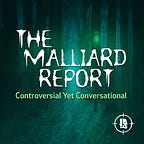n this episode of The Malliard Report, Jim Malliard welcomes Casey Goodwin, co-founder of Oregon Paranormal, for a grounded, in-depth conversation about the heart and hard work behind investigating the unknown. Together with fellow investigator Scott Riedel, Casey has helped shape one of the Pacific Northwest’s most respected teams — one that values research, skepticism, and service over showmanshipriverside_SWm6teB8oAMCIew=_The%….
The two begin by exploring Oregon Paranormal’s origins — a dream born between two friends in high school who turned campfire ghost stories into real-world investigations. From that first test run in a family bar to the group’s present-day operations, Casey details how curiosity and credibility built their reputation. What started as “just a fascination” evolved into a team of five professionals committed to helping people feel safe in their homes while keeping one foot firmly planted in both science.
A major theme throughout the conversation is historical research — not as background filler but as the backbone of every case. Goodwin explains how understanding the people and places of the past can be more revealing than any EVP session. “You can’t investigate what you don’t understand,” he notes, describing the thrill of uncovering forgotten property records and aerial photos from the 1930s that give context to modern hauntings. Jim agrees that this “boots-on-the-ground history” is often more compelling than a night of flashlight flickers.
The pair then turn to the Portland Underground, also known as the Shanghai Tunnels, a site where Oregon Paranormal volunteers regularly assist with tours and research. Goodwin describes the tunnels’ dark past and strange mix of residual, intelligent, and environmental phenomena. He stresses that not every night is dramatic — but every night is educational. As Jim points out, “You don’t get to schedule the supernatural.”
Their talk expands to include equipment, trigger objects, and the eternal debate over orbs (“Don’t even get me started,” laughs Goodwin). He and Scott describe using sock monkeys and period-accurate music as tools to evoke historical memory, a strategy that has produced some of their most intriguing responses. Beneath the technical talk lies something deeper: empathy for clients, integrity in the field, and an enduring sense of wonder.
By the episode’s end, Jim and Casey reaffirm what defines The Malliard Report: a conversation that respects mystery without surrendering reason — where professionalism meets curiosity, and where the paranormal meets Pennsylvania grit.
00:00 – 05:00
Jim opens with humor and welcomes Casey and Scott from Oregon Paranormal. The two describe the group’s founding and early investigations.
05:00 – 15:00
How high school ghost stories turned into a research-driven team. The early lessons learned — like never placing an audio recorder near a refrigerator.
15:00 – 25:00
The heart of Oregon Paranormal: historical research. Casey explains how local archives, aerial photos, and forgotten documents reveal new dimensions of hauntings.
25:00 – 45:00
Exploring the Portland Underground (Shanghai Tunnels) — archaeology, collaboration, and the strange mix of history and haunting.
45:00 – 60:00
Tools of the trade: from EMF detectors to full-spectrum cameras and Android-based acoustic mapping. How modern tools meet old-school patience.
60:00 – 75:00
Trigger objects and emotional resonance — from vintage sock monkeys to nursery rhymes that provoke unexpected responses.
75:00 – 90:00
Skepticism and sensitivity: why Oregon Paranormal refuses to “sell fear.” Jim and Casey discuss client care, orbs, and the myth of paranormal unity.
90:00 – End
Philosophy and the future. Casey talks about training, community building, and the real goal: helping people understand their experiences, not proving ghosts exist.
“The historical digging is often more rewarding than the investigation itself.” – Casey Goodwin
“If you’re going into someone’s home, you owe them honesty — not theatrics.” – Jim Malliard
“Just because you didn’t experience it doesn’t mean it didn’t happen.” – Casey Goodwin
“You can’t fake empathy and call it evidence.” – Jim Malliard
“Unity without purpose isn’t unity — it’s noise.” – Casey Goodwin




